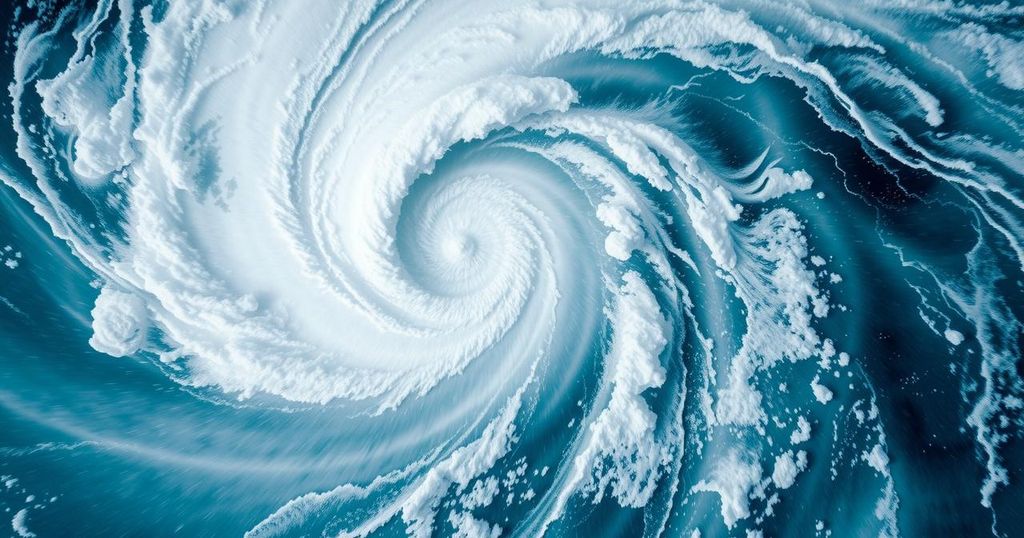Tropical Cyclone Chido Causes Destruction in Mayotte Before Heading to Africa
Tropical Cyclone Chido has severely impacted Mayotte, leading to extensive destruction and a red alert for citizens. With wind speeds surpassing 220 km/h, the cyclone is moving towards eastern Africa, threatening Mozambique and surrounding nations with significant hazards, including flooding and public health crises. Preparations are underway as authorities mobilize resources to assist affected populations amidst concerns about climate change exacerbating such disasters.
Tropical Cyclone Chido has caused significant destruction in Mayotte, a French territory in the Indian Ocean, as it advances towards eastern Africa. With wind speeds exceeding 220 kilometers per hour, the cyclone has torn roofs off homes and left thousands without power. According to Mayotte Prefect Francois-Xavier Bieuville, this storm is the most violent cyclonic event experienced since 1934. Thankfully, there have been no immediate reports of casualties.
Prefect Bieuville declared that citizens should remain confined in safe shelters, and safety services are mobilized to assist in rescue efforts post-cyclone. Thousands of homes have been severely damaged or destroyed, and the local government is coordinating support with French emergency responders. Simultaneously, the Comoros Islands, located north of Mayotte, are also experiencing the cyclone’s impact, with authorities expressing concern for missing fishermen after adverse weather struck.
As Cyclone Chido progresses towards Mozambique, forecasts predict that 2.5 million individuals in its path may face severe conditions, compelling authorities in Mozambique, Malawi, and Zimbabwe to prepare for possible evacuations. Notably, authorities caution that the cyclones bring heightened risks of flooding, landslides, and waterborne diseases due to stagnant water post-disaster. Climate studies indicate that cyclone intensity is increasing, exacerbated by climate change, significantly impacting vulnerable countries that contribute minimally to global greenhouse gas emissions.
Cyclone season in the southeastern Indian Ocean typically spans from December to March, during which powerful storms frequently impact the region. Over recent years, southern Africa has encountered numerous formidable cyclones, highlighting a concerning trend linked to climate change. In instances such as Cyclone Idai in 2019, devastating effects were felt across Mozambique, Malawi, and Zimbabwe, where over 1,300 fatalities were reported. The recurrence of such storms and their escalating severity necessitates urgent preparedness and response actions from nations in the affected area, particularly those with limited resources to combat resulting humanitarian crises. Authorities are burdened with managing the impact of these climatic events, which includes addressing potential outbreaks of waterborne diseases following flooding, adding to the public health challenges faced in these regions.
In summary, Tropical Cyclone Chido has devastated Mayotte, signaling a severe humanitarian challenge as it moves toward Mozambique. The resultant damage underscores the escalating threat of tropical cyclones in the Indian Ocean, influenced by climate change, and highlights the vulnerability of southern African nations to such disasters. As communities work towards recovery, there remains an urgent need for preparedness against future climatic events and associated public health risks.
Original Source: www.voanews.com




Post Comment